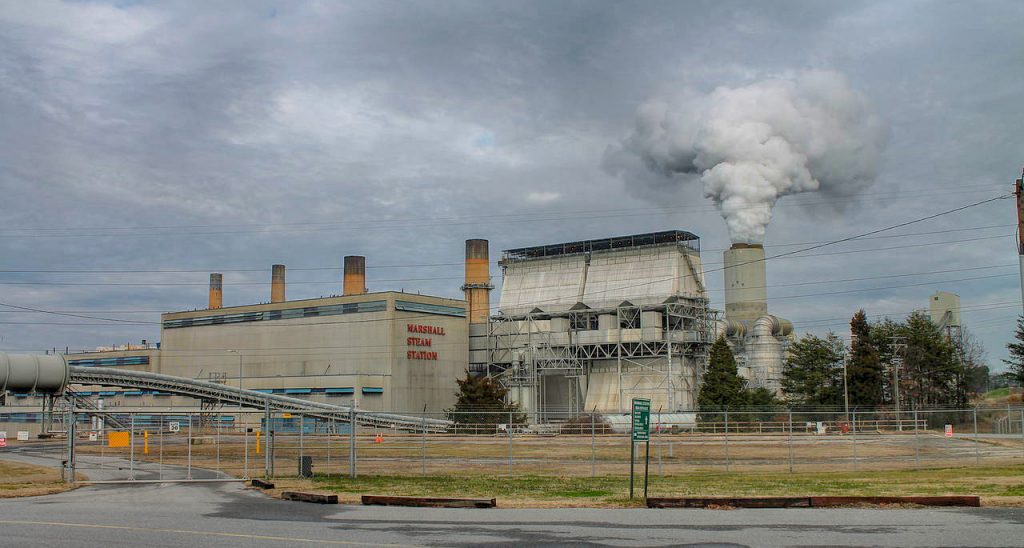Cleaning Up Coal Ash
For well over a century, power plants across the country have burned coal to generate electricity. And for just as long, leftover coal ash has been dumped in open, unlined pits near the power plant, usually located on a river or lake. Every year, U.S. power plants produce 130 million tons of coal ash, which is the second largest waste stream in the country after municipal garbage.
Coal ash concentrates the toxic heavy metals found in coal, including arsenic, mercury, lead and selenium. Stored in unlined, wet impoundments, coal ash has been leaking these toxics into our groundwater and surface waters for years. Sometimes these impoundments collapse — with disastrous results.
Yet government regulations for coal ash management are either non-existent or sparse, and there is little enforcement of the regulations that do exist. In North Carolina, this lack of oversight — and the complicity between state regulators, elected officials and Duke Energy — came to a boiling point in February 2014 when one of Duke’s coal ash impoundments spilled 39 million tons of ash into the Dan River.
Citizens living near North Carolina’s 33 coal ash impoundments — all of which have leaked — have fought for transparency from Duke and the state, and for cleanup of the pollution that threatens their property value, health and family. Their actions forced this issue into the headlines of news networks and to the forefront of environmental justice conversations in the United States.
Appalachian Voices stood with these communities as we worked for years to compel Duke Energy and the N.C. Department of Environmental Quality to excavate coal ash from all the North Carolina sites and dispose of it either in lined, dry landfills, away from waterways, or by recycling it for concrete or other uses, provided it’s done in a manner that protects public health and the environment.
On Jan. 2, 2020, North Carolina announced a historic settlement with one of the state’s most powerful corporations and polluters, Duke Energy. The settlement requires Duke to move nearly 80 million tons of toxic coal ash at six of its power plants to properly lined landfills onsite or recycle it.

Learn information about specific coal ash impoundments in the South, including health threats and safety ratings:
Additional Resources
Fact sheets, videos, links to academic research, and more
Sign Up to Act
Help us protect the health of our communities and waterways.
Latest News
Virginia Delegates face a choice on Tuesday: Dominion Energy or Virginia families
CONTACT: Tom Cormons, Executive Director, tom@appvoices.org, (434) 981-6506…
West Virginians speak out against proposal to log state parks
Guest blogger Chad Cordell of the Kanawha Forest Coalition provides an update on a West Virginia bill that would allow commercial logging of high-value trees in WV state parks, and shares some easy ways to contact decision-makers in support of our parks. #SOSParks
High winter energy bills got you down?
Thousands of families see their energy costs skyrocket in winter, leaving many struggling to pay their bills. Here’s a basic overview of electric bills and how energy use translates to the balance you see on your bill.
Va. utility regulator finds fault with electric rate bill
CONTACT: Cat McCue, Communications Director, cat@appvoices.org, 434-293-6373 The…
More to ‘pumped storage’ than meets the eye
A plan to use defunct coal mines in Southwest Virginia for a hydroelectric facility could be a great idea — provided it uses local workers and locally sited solar energy to run the operation.
Hold Duke Energy accountable for its illegal coal ash leaks
North Carolina environmental regulators have proposed an arrangement that requires Duke Energy to take some expedited clean-up steps at its Marshall, Allen and Cliffside coal ash ponds. But the proposal doesn’t go far enough. The N.C. DEQ needs to hear from you!










